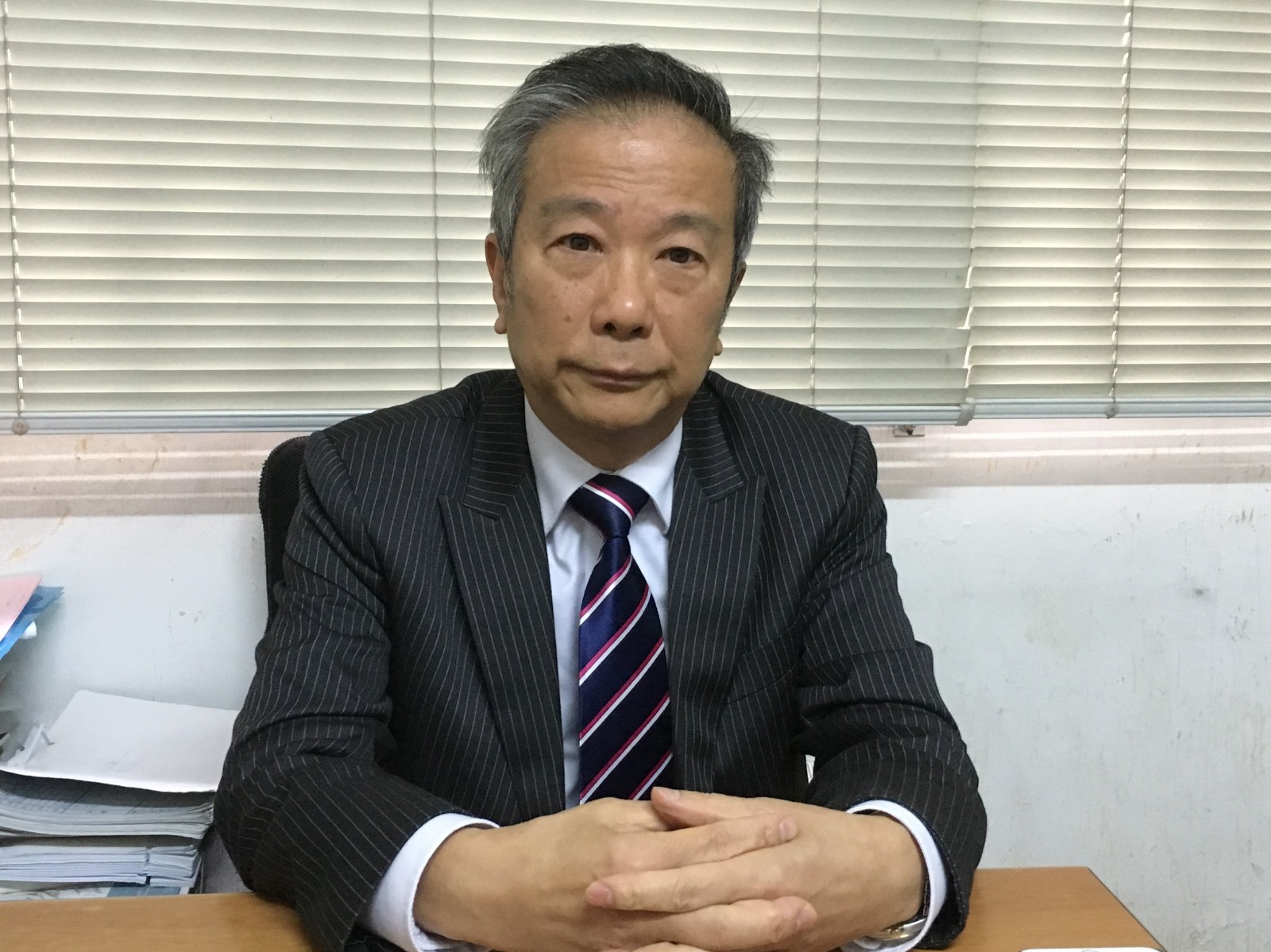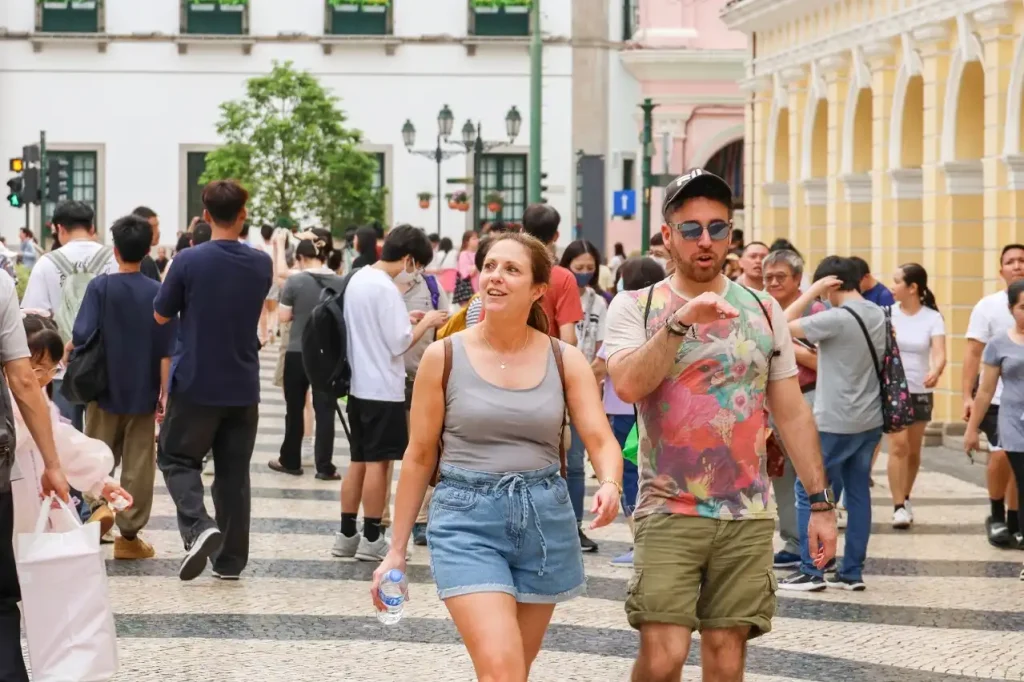The dramatic decline in the renminbi (RMB) against the US dollar is increasingly weighing on Macau’s tourism market. As the RMB continues to weaken, mainland Chinese tourists are finding that the cost of visiting Macau has risen sometimes by double digits, without corresponding price adjustments, making the destination less attractive.
Since Donald Trump was elected US president in November of last year, aggressive tariff policies, though not yet fully implemented, have contributed to a nearly 3 percent depreciation of the RMB in a short period. Further depreciation is also anticipated.
Meanwhile, the US Federal Reserve slowed its rate-cutting cycle this year, causing the US Dollar Index to repeatedly surge to over two-year highs. As a result, non-US currencies, including the RMB and the Korean won, have faced widespread pressure.
A key factor in this situation is that Macau uses the Hong Kong dollar for gaming activities, and the Hong Kong dollar has a relatively fixed exchange rate against the US dollar. Similarly, the local currency, the pataca (MOP), is pegged to the Hong Kong dollar, meaning the strong US dollar directly affects the purchasing power of tourists, particularly those from mainland China. According to official data, over 70 percent of the nearly 35 million visitors to Macau last year came from mainland China.

In an interview with AGB, Lei Cheok Kuan, president of the Industry and Commerce Federation of Macau’s Central and Southern District, noted that the Macau retail sector had a difficult year in 2024, with a general price increase of around 10 percent for goods aimed at tourists. This was primarily due to currency fluctuations. “This is a trend that Macau must endure, and there is little we can do about it, as exports play a more important role in China’s economy,” lamented Lei.
Lei explained that local businesses have faced multiple layers of impact. The first challenge is a shift in consumer behavior, with both tourist-related retail businesses and those catering to local residents seeing a dramatic change in spending patterns. “Both are suffering due to the loss of clients,” he said.
The head of the branch of the Macau Chamber of Commerce also pointed out: “Before COVID, mainland shoppers were much more enthusiastic about shopping in Macau. Now, their willingness to shop here has significantly decreased. Previously, everyone had shopping bags in hand, but now you can notice that only one in every few people is shopping here.”
This conclusion aligns with gaming performance trends. According to a report from Seaport Research Partners in August last year, senior analyst Vitaly Umansky concluded that Macau’s mass market is unlikely to experience a strong recovery until China’s economy and consumer confidence improve.
According to data from Macau’s Statistics and Census Service (DSEC), retail sales decreased by 16.9 percent year-on-year in the first three quarters of 2024, reaching just 95 percent of the level seen in the same period in 2019.
The worsening situation for SMEs in Macau may indirectly impact the city’s gaming operators. One of the Macau government’s policies is to encourage gaming operators to take on more social responsibility by supporting local business. However, the deteriorating commercial environment could also hinder any efforts made by gaming operators to contribute to these initiatives.

International market
Macau’s tourism authorities are making significant efforts to reduce the region’s reliance on the mainland Chinese market by focusing on attracting more international tourists. In 2024, Macau welcomed approximately 2 million foreign visitors, with a short-term target of reaching 3 million, a level equivalent to pre-COVID numbers. However, fluctuations in currency values have also impacted the international tourism sector.
According to the latest visitor arrival data from January to November of 2024, Macau received 437,160 visitors from South Korea, 433,102 from the Philippines, 156,192 from Indonesia, and 154,381 from Malaysia.
South Korea, now the largest source of foreign tourists to Macau, has been particularly affected. The Korean won reached its lowest level against the US dollar in 16 years, making Macau more expensive for South Korean travelers and reducing their purchasing power.
Similarly, currencies from other Southeast Asian countries, such as the Malaysian ringgit and the Singapore dollar, have also weakened, further diminishing the spending capacity of tourists from these regions.

Paul Wong, president of the Macau Leisure Tourism Services Innovation Association, told Macao Daily that he is concerned the depreciation of the Macau currency could temporarily affect the influx of international visitors. He suggested that Macau should leverage mainland China’s visa-exemption policies to strengthen the Greater Bay Area’s “multi-stop” travel network. Additionally, he recommended that Macau continue enhancing its international connections to offer more options for tourists.
Wong further explained that in recent years, mainland China has granted visa-free entry to several Southeast Asian and European countries, boosting its tourism competitiveness and encouraging foreign tourists to fly directly to China. Coupled with other cities taking advantage of one-way visa-free entry policies, this has led to significant growth in their tourism industries.
In this context, he hopes that the government, tourism sector, and airlines will strengthen communication to develop suitable solutions and overcome the challenges of restoring international routes.



